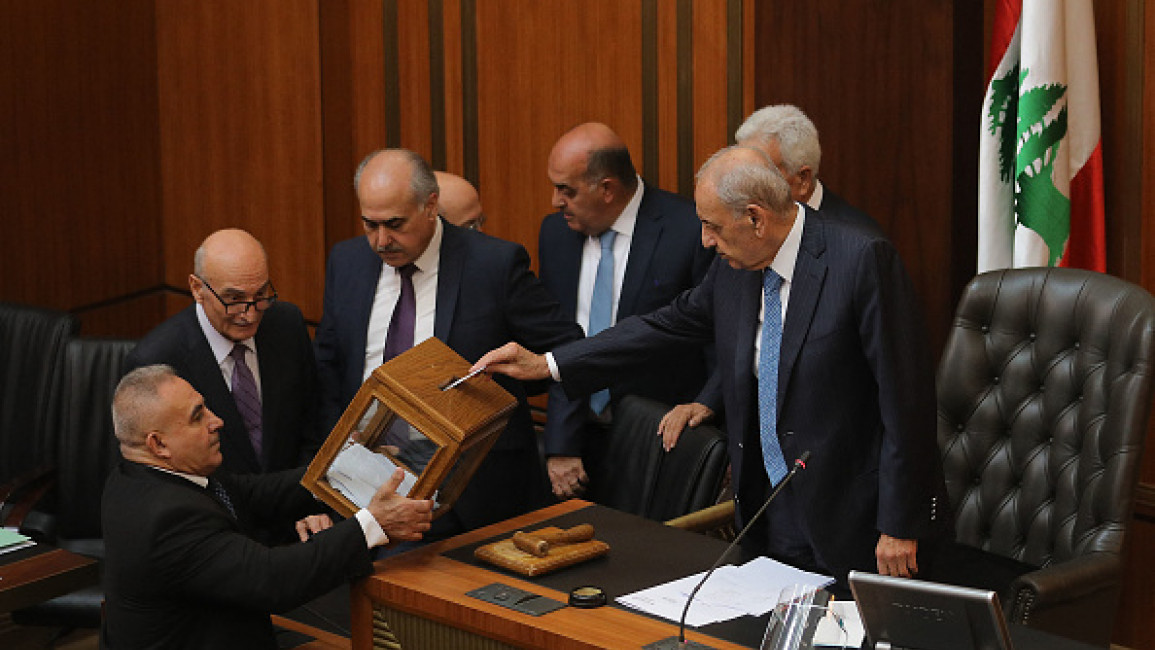Lebanon fails to elect new president in first round of voting
Lebanon's parliament failed to appoint a new president on Thursday as rival blocs failed to agree on a presidential candidate.
Lebanon’s current President Michel Aoun's term runs out on October 31. Lebanon's parliament appoints a new president via a two-thirds majority, or if the first round of voting fails, a simple majority.
The two top contenders for the presidency, sitting MP Michel Moawad and businessman Salim Edde, received just 36 and 11 votes, respectively, out of a total of 122. The majority of votes cast were either blank or spoiled.
Speaker of the House Nabih Berri closed the parliamentary session without announcing when the next vote for president would take place, saying he would wait for a consensus before calling for a new vote.
The major parliamentary blocs – the independent 'Change' MPs, the Lebanese Forces and allies, and the pro-Hezbollah bloc – have not presented candidates which unified lawmakers.
Hours before the vote, a spokesperson for the Lebanese Forces told The New Arab that the party was "still exploring available options."
The Lebanese Forces have thrown their weight behind Moawad, while the Change MPs voted for Salim Eddie. The pro-Hezbollah bloc had been rumoured for months to support MP Suleiman Frangieh for the presidency but did not vote for him on Thursday morning.
With no viable contender to replace sitting President Aoun, it seems likely that Lebanon will be facing a presidential vacuum at a moment of deep economic and political crisis. Over the last three years, Lebanon has fallen into an economic crisis which left over two-thirds of the population in poverty.
It is unclear whether or not Aoun, 88, will vacate the office once his term expires. Commenting on this, Aoun said earlier in the month that he will leave the office if it is a "normal day" in Lebanon.
If Aoun leaves, Lebanon's caretaker Prime Minister, Najib Mikati, will assume the president's duties. If the president stays, it could lead to a new government or one with unclear powers.
Though essentially a symbolic role, Lebanon's president still has the power to dismiss and appoint governments and ministers.
Lebanon is currently governed by a caretaker government, despite holding a parliamentary election in May. Electing a new president is widely assumed will lead to a new government's formation.
Lebanon's political paralysis occurs as Lebanon descends deeper into economic woes, with the national currency hitting new lows and lawmakers failing to pass much-needed reforms.
An IMF delegation which visited Lebanon last week condemned what it saw as "very slow" progress on changes that would unlock badly needed international aid for the country.
Without a president with a full mandate, reforms are likely to be delayed even further.



